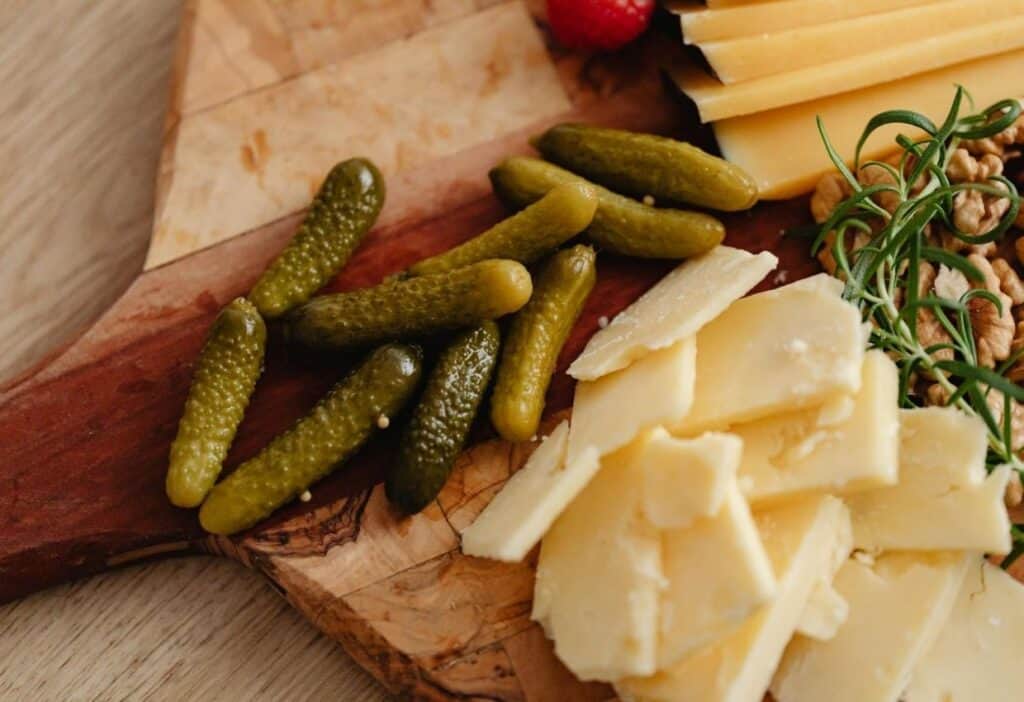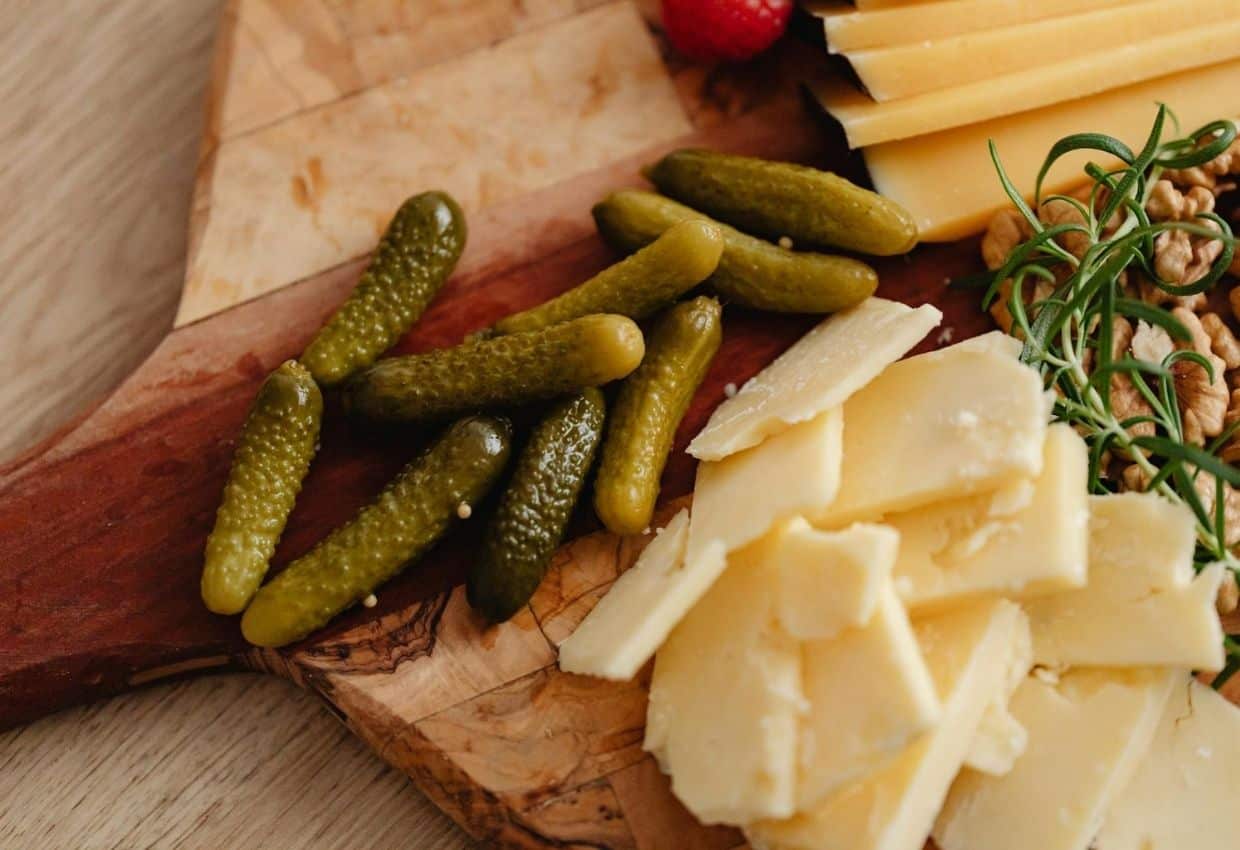National Pickle Day is here to satisfy your cravings
National Pickle Day arrives on Nov. 14, 2025. It may seem like a strange holiday, but the global pickles market reached an impressive $12.5 billion in 2024, according to Research and Markets. Discover the world of pickles and learn how a preserved vegetable became a multibillion-dollar obsession.

The origins of National Pickle Day
National Pickle Day was born from humanity’s timeless love for pickled foods. As far back as 2,400 B.C., ancient civilizations preserved vegetables, fruits and meats in brine to extend their shelf life. Cleopatra is said to have credited her health and beauty to pickles, while Julius Caesar reportedly fed them to his soldiers, believing they made them stronger.
Pickle’s long and flavorful history easily warrants a celebration of its own. The Pickle Packers International helped bring that idea to life in 1949, launching National Pickle Week in the United States to honor and promote the industry. Today, pickles have grown into a global multibillion-dollar phenomenon. People around the world crunch in unison every Nov. 14 in celebration of their enduring legacy.
Pickles from around the world
Pickling is a global tradition that’s endlessly adaptable. Across continents, cultures have developed distinctive styles using local ingredients and techniques. In Korea, kimchi is the most iconic fermented dish. It is made with napa cabbage and radishes, spiced with red chili flakes, garlic and green onions. Pungent and spicy, kimchi is a staple of Korean cuisine and appears at nearly every meal alongside rice and stews.
In India, pickling embraces intensity. Known as achar, Indian pickles take many forms, including pickled peppers, tangy green mangoes, mixed vegetables and even lime. Unlike many Western brines, achar is often preserved in oil and layered with bold spices like mustard seeds, turmeric and fenugreek. The result is explosive flavour: fiery, sour and aromatic. It adds complexity to rice, dal, curries and flatbreads.
From Japan’s crisp tsukemono to North America’s classic dill spears and the briny olives of the Mediterranean, pickles reflect local traditions and regional flavours. Celebrated each year on National Pickle Day, these preserved foods are cultural time capsules that carry generations of history in every bite.
The health perks behind the crunch
Fermented vegetables do more than add a tangy crunch to your plate. They are naturally rich in probiotics that support overall health. Research suggests that regular consumption of fermented foods may improve digestion, strengthen the immune system, help manage chronic conditions and even provide anticancer effects.
Not all fermented vegetables are the same. Each type produces different probiotic strains, along with its own unique strengths. Kimchi is known to contain Lactococcus lactis. This strain has anti-inflammatory, antioxidant and cholesterol-lowering effects. Chinese sauerkraut produces Bacillus velezensis, which is linked to promising anticancer properties.
While pickles can be part of a healthy diet, excessive consumption can lead to high sodium intake. This increases the risk of hypertension and even gastric cancer. Like all good things, fermented vegetables should be enjoyed in moderation.
Seasoning secrets for the perfect pickle
Pickling begins with a simple brine made from water, salt and vinegar, but it is the seasoning that brings each jar to life. The possibilities are endless. Jalapenos or red chili flakes add heat, while sugar or honey softens acidity with a hint of sweetness. Transform a plain pickle into something memorable with aromatic spices like black peppercorn, bay leaf, allspice berries and mustard seed.
The type of vinegar also affects the flavor. White vinegar gives a clean, sharp taste, while apple cider vinegar adds subtle fruitiness. Rice vinegar, often used in Asian-style pickles, provides a mild, sweet undertone. The magic lies in experimentation. Once a favorite combination of spices and vinegar is discovered, the possibilities expand far beyond cucumbers. Pickled onions, carrots, eggs and even mushrooms soak up flavor well, proving that this food is as much about creativity as it is about tradition.
Pickles go viral
Pickles have become a sensation thanks to their versatility. No longer just a burger topping, they can brighten a wide range of dishes. A spoonful of pickled vegetables can cut through the richness of a hearty chickpea chili, stirred in for a subtle tang or added on top for a refreshing crunch. The result is a meal that is comforting yet light, full of flavor and balance.
Pickles have also become a pop culture phenomenon. On TikTok, #PickleTok has millions of views, featuring everything from pickle sandwiches to hot Cheetos-stuffed pickles and pickles wrapped in fruit roll-ups. Retail shelves reflect the craze, with pickle-flavored snacks like Blue Diamond’s Spicy Dill Pickle Almonds and Heinz’s Pickle Ketchup. It’s no surprise that the average American consumes around 9 pounds of pickles each year.
Fun ways to celebrate National Pickle Day
Get into the spirit of this holiday with a blind pickle taste test. Line up five popular grocery store brands or different styles, like classic dill or spicy garlic, and see who can guess them all correctly. It’s a fun challenge for pickle lovers of all ages.
For a more hands-on experience, host a DIY pickling party. Stock up on jars, vinegar, fresh vegetables and spices, then let guests create their own custom brines. Keep the theme going with pickle-inspired dishes: pickle-topped pizza, crispy fried chicken with a tangy kick or brined veggie sticks for snacking. Whatever the approach, a celebration of pickles should be as bold, bright and flavorful as the snacks themselves.
Get brining
National Pickle Day is more than just an excuse to snack. It’s a celebration of a timeless food with rich history and global appeal. From ancient preservation methods to a multi-billion-dollar industry, pickles have stood the test of time. Pick up a pickle, crunch boldly and savor the briny spirit that has captured taste buds across generations and cultures.
Kristen Wood is an award-winning photographer, food writer, recipe developer and certified functional nutrition expert. She is also the creator of MOON and spoon and yum, a vegetarian food blog, and the author of “Vegetarian Family Cookbook,” “Fermented Hot Sauce Cookbook” and “Hot Sauce Cookbook for Beginners.” Her work has appeared in various online and print publications, including NBC, Seattle Times, ABC, Elle, Fox, CBS, Forbes, Chicago Sun-Times and more.


